Report on the Open Seminar / 29 September 2018.
Seminar Title : SCENARIOS, MODELS, AND VALUES OF BIODIVERSITY AND NATURE'S CONTRIBUTIONS TO PEOPLE
・Date: 29 (Sat) September, 14:00-16:30
・Daiwa House Ishibashi Nobuo Memorial Hall, the University of Tokyo
Background:
Following to the welcome remarks from Prof. Kazuhiko Takeuchi, project leader of the PANCES, and Ms. Noyuri Suetsugu, Ministry of the Environment, Japan, the first presentation was made by Prof. Eduardo S. Brondizio, co-chair of the Global Assessment in the Inter-governmental Platform on Biodiversity and Ecosystem Services (IPBES). He stressed the need to scale up indigenous and local knowledge (ILK) to regional and global level based on the evidence, showing one example that indigenous peoples manage areas over 38Mkm2 in 87 countries, which intersect about 40% of all terrestrial protected areas and ecologically intact landscapes. Presenting many urgent problems surrounding oceans (e.g. acidification, deoxygenation, eutrophication, plastics and coastal ecosystem degradation), Dr. Salvatore Arico in UNESCO underlined the role of science in collecting data, building capacity in developing countries and analyzing scenarios for future management. Dr. Simon Ferrier, senior principal researcher in CSIRO, delivered the key messages of IPBES assessment on scenarios and models, and advocated multi-scale scenarios with multiple system components, scenario types, spatial scales and temporal durations to consider more flexible and adaptable nature futures. At the last of the presentation session, Dr. Osamu Saito in UNU made a presentation to briefly introduce progress of our PANCES project.
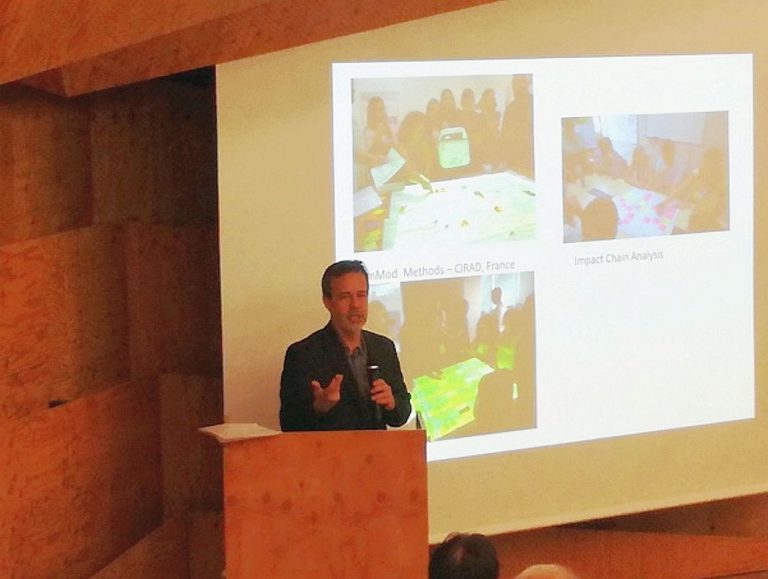
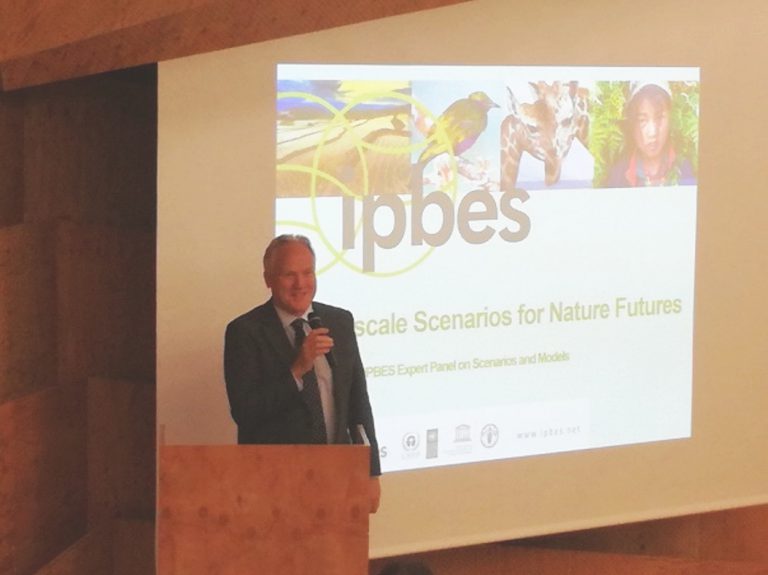
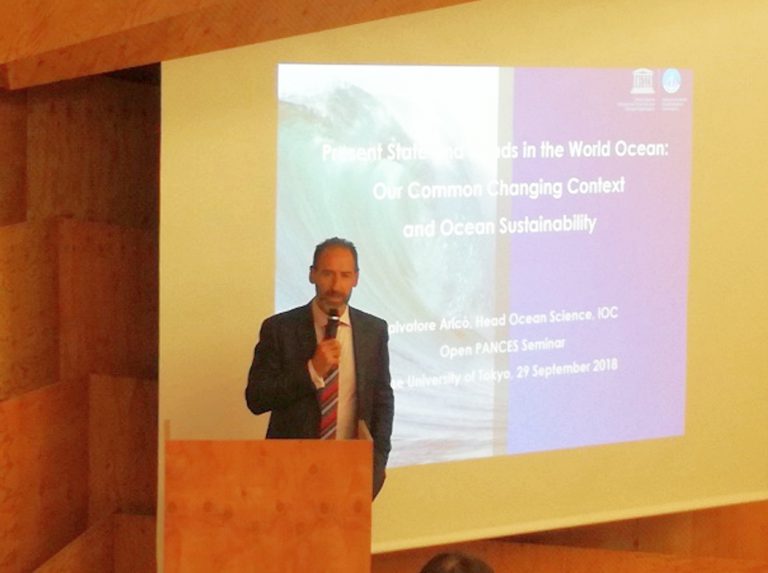
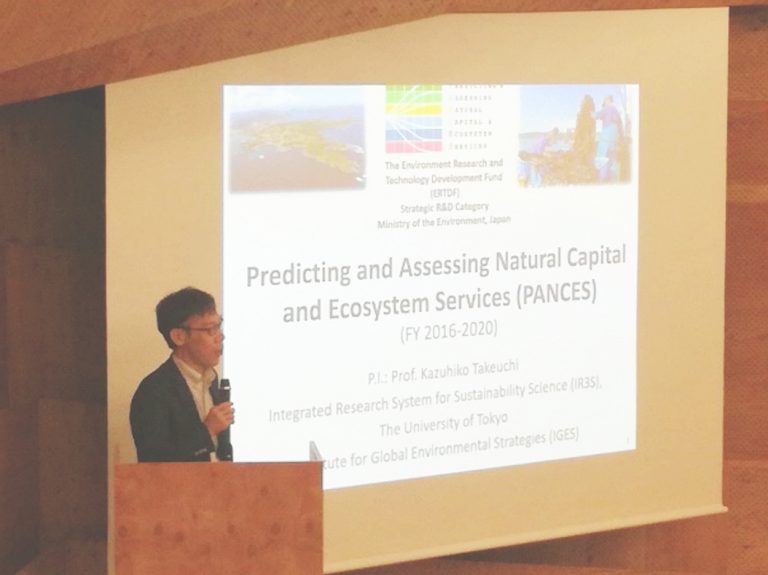
The latter half of the seminar was spared for the panel discussion that was moderated by Dr. Shizuka Hashimoto, the University of Tokyo. Following to a few quick questions on the presentations, the speakers provided their views on the current hot debate on two concepts, namely, Nature’s Contribution to People (NCP) and Ecosystem Services (ES). Prof. Brondizio made clear remarks that these two concepts have more similarities rather than differences and that such debate should be productive and constructive to improve our understanding of nature. Dr. Arico also touched upon this point and noted that the debate to understand ecosystem values is evolving now to include non-economic values (e.g. cultural and relational values). However, there is no numerical models to describe the relationship between people and nature, according to Dr. Ferrier, who realizes such research gaps. Noting that the terms “ecology” and “economy” derive from the same source “oikos” (meaning “house”), Prof. Takeuchi stressed the need to revisit the ES concepts.
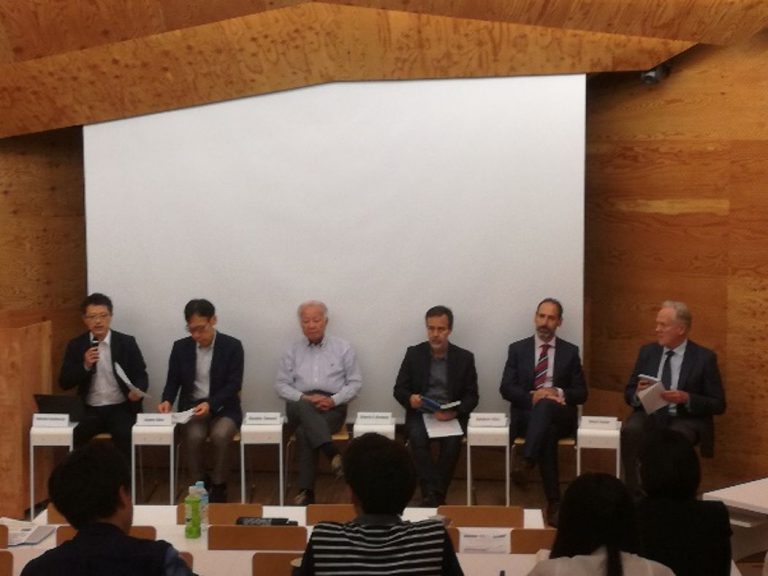
Another topic that they discussed was ILK. Indigenous peoples often share similar environmental issues (e.g. dam and road construction), according to Prof. Brondizio, and therefore their local issues can be analyzed in the global contexts and scenarios, he said. Dr. Saito then emphasized the importance to integrate ILK with modern science and technology to make progress of Satoyama Initiative, which promotes activities dedicated for conservation and sustainable use of biodiversity in socio-ecological production landscapes. Bearing in mind that ILK has been less evaluated in the climate change communities that prioritize peer-reviewed articles (i.e. scientific knowledge), Dr. Arico and Prof. Takeuchi shared similar views that IPBES is the right place to address ILK as it accepts gray literatures as well. As a final remark, Prof. Takeuchi also noted the needs to translate ILK into scientific languages.
2018/10/05